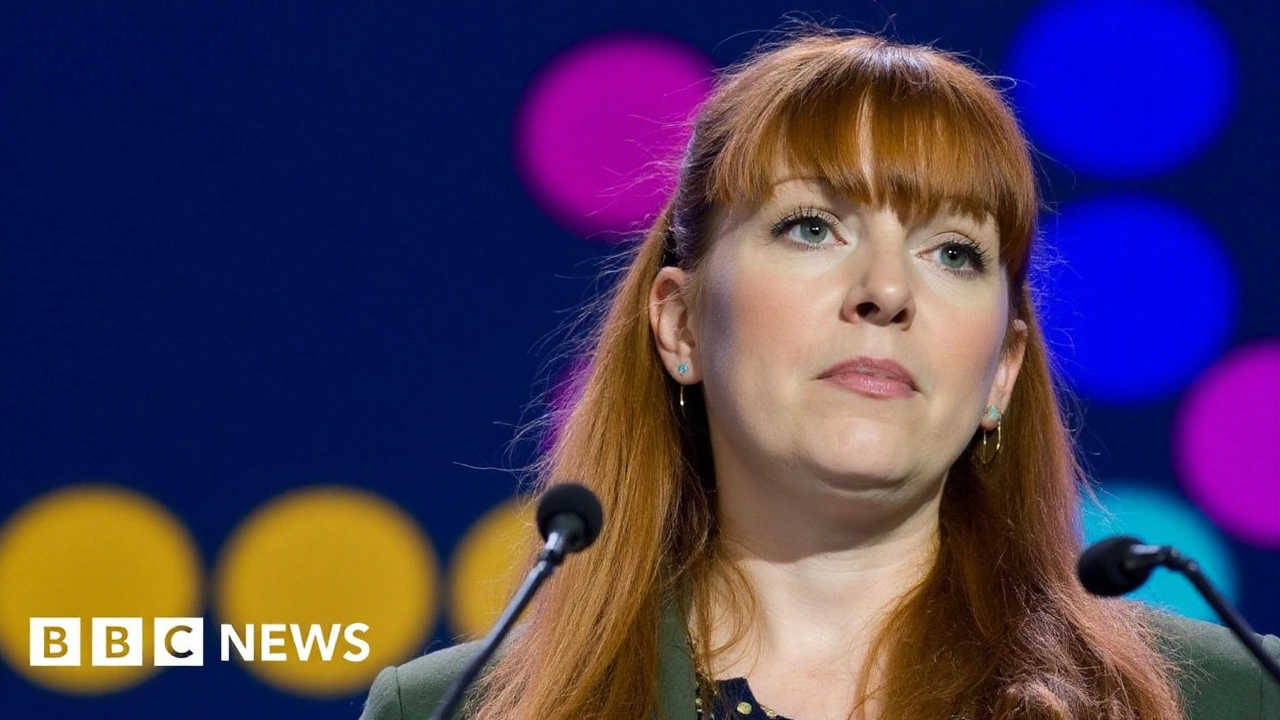Angela Rayner resigns after tax probe, triggering major Labour reshuffle and fresh party test

A sudden fall for Labour’s most effective campaigner
A year after helping deliver Labour’s return to power, Angela Rayner is out of government. On 5 September 2025, the Deputy Prime Minister and Secretary of State for Housing, Communities and Local Government resigned from all ministerial roles. The move followed an inquiry by Sir Laurie Magnus, the Prime Minister’s independent adviser on ministerial interests, which concluded she had not met the “highest possible standards of proper conduct” in relation to underpaid stamp duty on a property purchase.
Rayner referred herself to the ethics adviser when questions about the transaction surfaced. In her resignation letter to Keir Starmer, she expressed deep regret for not seeking specialist tax advice given her senior role and what she described as complex family arrangements. She said she accepted full responsibility, insisted she had intended to pay the correct tax, and pledged to cooperate with any follow‑up from the authorities.
Starmer called the decision painful but right, thanked her for her role in Labour’s election win and early months in office, and moved swiftly to stabilize the Cabinet. David Lammy was named Deputy Prime Minister while retaining the justice brief, Shabana Mahmood moved to the Home Office, Yvette Cooper shifted to the Foreign Office, and Steve Reed took over Housing. The speed of the reshuffle underscored No 10’s desire to stop a political bleed before it turned into a crisis.
For Labour, the loss is not just about a high‑profile minister. Rayner had become the party’s bluntest communicator—someone who could deal with hostile interviews and still land blows on opponents. Her exit creates a gap both in the Cabinet table and on the airwaves.

What the probe found—and why it matters
The inquiry focused on stamp duty land tax, paid on property purchases in England and Northern Ireland. These rules are fiddly at the best of times: rates vary with price bands, first‑time buyer reliefs, and whether a purchase counts as an additional property. Even small errors can trigger underpayments or penalties. The adviser’s assessment did not accuse Rayner of deliberately avoiding tax; rather, it said the standards expected of a senior minister—especially the Housing Secretary—require rigorous advice and clear documentation. On that measure, she fell short.
That distinction matters. In Westminster, intent and conduct are judged differently. The ministerial code is not a criminal statute; it is a set of expectations built around trust, transparency, and avoiding conflicts. The adviser judged that not seeking specialist advice, given her position and the complexity of the purchase, was incompatible with those expectations. For Starmer, who campaigned on “cleaning up politics,” the optics were unavoidable.
There is also a process point. The independent adviser cannot normally initiate an investigation without the Prime Minister’s consent, but in this case Rayner referred herself. That gave Downing Street a measure of control over timing and scope—and still ended with a resignation. It’s a reminder that the standards regime, tighter than it was five years ago, can still deliver politically sharp outcomes.
Opponents moved fast. Conservatives framed the episode as proof Labour’s standards rhetoric doesn’t match reality, while Liberal Democrats demanded full disclosure of documents and timelines. Trade union figures were more circumspect, praising Rayner’s record on workers’ rights and her authenticity on the stump. Among Labour MPs, the mood mixed sympathy with frustration: sympathy for a colleague who rose from care work to high office; frustration that an unforced error has handed the opposition a line of attack.
Rayner’s personal journey remains central to her political story. Raised in Stockport, she left school at 16 while pregnant, trained in social care at Stockport College, and worked as a care worker before rising through Unison. Elected MP for Ashton‑under‑Lyne in 2015, she served in multiple shadow roles under Jeremy Corbyn and won the elected post of Labour deputy leader in 2020. Her plain‑speaking style won grassroots loyalty and media attention, sometimes for the wrong reasons, but it gave Labour a messenger who sounded different in a heavily scripted age.
In government, her housing and local government brief meant owning one of Labour’s hardest jobs. Targets for new homes, reforms to the planning system, a promised renters’ charter, and a funding reset for councils were all moving parts on her desk. Civil servants say the department has spent months drafting a new planning framework and assembling a multiyear settlement for local authorities. With Rayner gone, Steve Reed inherits the files—and the political pressure to keep shovels moving and councils solvent.
The policy stakes are high. England’s housing shortage has deep roots: constrained land supply, a planning system that can take years to approve projects, limited social housing, and over‑stretched local budgets. The government’s promise of “bulldozers and builders” rests on a chain of decisions—from Whitehall guidance to local plan approvals—that is easy to jam and hard to unclog. Any slowdown now risks missing the first‑term window where big reforms usually happen.
Starmer’s reshuffle suggests a defensive posture and a bet on experience. Lammy’s dual role consolidates authority at the top of government, while Mahmood’s move to the Home Office puts a tough operator in a department with constant political risk. Yvette Cooper’s switch to the Foreign Office gives the diplomatic brief to one of Labour’s most seasoned hands, just as Europe navigates migration pressures and the US election cycle adds volatility. Stability, not flair, is the message.
There is also the question of Labour’s internal politics. Rayner’s departure triggers a deputy leadership election, a contest decided by party members, affiliates, and MPs. The names circulating at Westminster span the party’s breadth: figures from Labour’s soft left, trade‑union allies, and modernisers who argue the party needs a fresh communicator for a long grind in office. Whether senior Cabinet ministers will run—or back a candidate from outside the top tier—remains to be seen. What is certain is that the race will test how much of Labour’s pre‑election unity survives the pressures of governing.
Expect the campaign to revolve around identity and strategy. Rayner symbolized Labour’s attempt to reconnect with working‑class voters outside London while keeping liberal professionals on board. Candidates will claim they can speak to both. They will also be pressed on how to support the Prime Minister’s agenda without disappearing into it. The deputy leader has a platform; how they use it will shape Labour’s tone—and its ground game—for the rest of the term.
Public opinion is the other variable. Voters care less about the intricacies of stamp duty than about whether politicians look like they play by the rules. Early polling after high‑profile resignations often dips before stabilizing if the government projects competence and moves on. The speed of Starmer’s reshuffle is designed to blunt the story and refocus attention on delivery: cutting NHS backlogs, getting homes built, and easing pressure on household bills.
Rayner, for her part, remains an MP and a force within the movement. Allies say she will campaign on workers’ rights and devolution, causes that first brought her into politics. British politics is full of second acts. Whether she finds one will depend on the outcome of any tax settlements, the temperature of the deputy leadership race, and whether Labour’s front bench makes space for a comeback down the line.
None of this erases the immediate political cost. A government that promised to restore trust has lost a top lieutenant to a case about tax propriety. A party that found discipline in opposition must now prove it can keep it in power. And a leader who prizes order over drama has been dragged into both. In that sense, the story is bigger than a resignation. It is a stress test of Labour’s claim to be different, and of Starmer’s ability to ride out turbulence without drifting off course.
What happens next will be brisk. The Cabinet will try to lock in decisions on planning and local government funding before conference season. The deputy leadership contest will move from whispers to declarations. And the opposition will keep hammering at the gap between promise and practice. For now, the government has contained the fire. Whether it has stamped out the embers is another question.
- David Lammy: Deputy Prime Minister and Justice Secretary
- Shabana Mahmood: Home Secretary
- Yvette Cooper: Foreign Secretary
- Steve Reed: Housing, Communities and Local Government Secretary
The personnel changes are only part of the test. Delivery—on homes, safety, diplomacy, and justice—will tell the real story of whether Labour can turn a bad week into a footnote, or whether this moment marks the end of its political honeymoon.